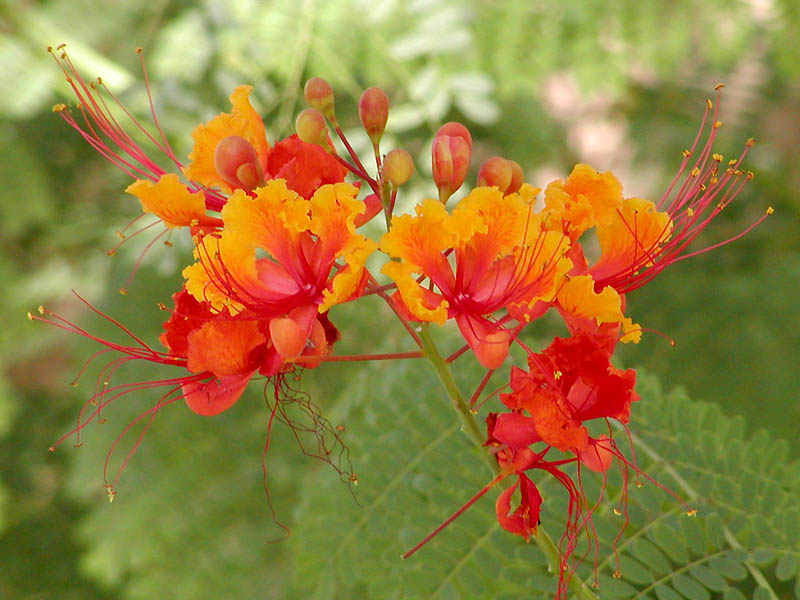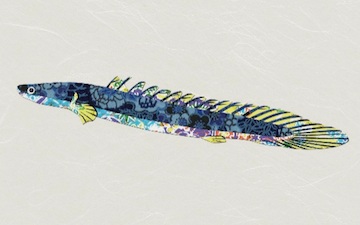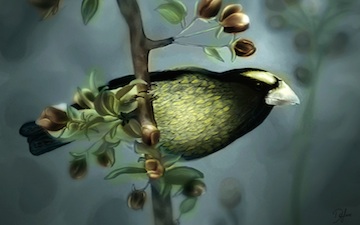For best results print the cards using the Firefox Browser
Cards
(QUICK LINKS: Decks | plants | mammals | birds | | reptiles | fish | cephalopoda | insects | microbe | events
( scientist | project | modifier | technique |)

Poinciana
Caesalpinia pulcherrima



3 POINTS
• Caesalpinia pulcherrima is the national flower of Barbados.
Warm
Graphic by Pat Knorppp-e-a-k.deviantart.com/
Photo by Shebs, Stanen.wikipedia.org/wiki/User:Stan_Shebs
Caesalpinia pulcherrima is a species of flowering plant in the pea family, Fabaceae, that is native to the tropics and subtropics of the Americas. Its exact origin is unknown due to widespread cultivation.[1] Common names for this species include Poinciana, Peacock Flower, Red Bird of Paradise, Mexican Bird of Paradise, Dwarf Poinciana, Pride of Barbados, […] read more

Saddled Bichir
Polypterus enlicheri


Sorry, there is no photo available. If you have one, please submit
here
.
8 POINTS
• Polypterus enlicheri has a MOVE of 2.
• Polypterus enlicheri has poor eyesight. It primarily hunts by smell.
Cool, Warm
Graphic by Yukiko Fujiwarawww.cdb.riken.go.jp/en/05_development/0506_piccard05.html
The body is long and about as deep as it is wide. A serrated dorsal fin runs along most of the body until it meets the caudal fin. The pectoral fins attach just behind and below the gill openings and are the primary means of locomotion, providing a slow, graceful appearance. The pattern of the […] read more

Domestic Cat
Felis catus



4 POINTS
• Felis catus has a MOVE of 2
• Cats are common pets in Europe and North America, and their worldwide population exceeds 500 million
Cold, Cool, Warm, Hot
Graphic by Camelli Cameltoncamelid.deviantart.com/
Photo by Panthercommons.wikimedia.org/wiki/File:Red_Cat_in_Torzhok_City.jpg
The domestic cat[1][2] (Felis catus[2] or Felis silvestris catus[4]) is a small, usuallyfurry, domesticated, and carnivorous mammal. It is often called the housecat when kept as an indoor pet,[6] or simply the cat when there is no need to distinguish it from other felids and felines. Cats are often valued by humans for companionship and their ability to hunt vermin and household pests. Cats are similar in anatomy to the other felids, with strong, […] read more

Rose-ringed Parakeet
Psittacula krameri



2 POINTS
• Psittacula krameri has a FLIGHT of 2
• Psittacula krameri can mimic human speech.
Cold, Cool, Warm
Graphic by Sarah Stringhettasaraquarelle.deviantart.com/
The Rose-ringed Parakeet (Psittacula krameri), also known as the Ring-necked Parakeet, is a gregarious tropical Afro-Asian parakeet species that has an extremely large range. Since the trend of the population appears to be increasing, the species was evaluated as Least Concern by IUCN in 2012.[1] Rose-ringed parakeets are popular as pets. Its scientific name commemorates the Austrian naturalist Wilhelm Heinrich Kramer.[2] This non-migrating species is one of few […] read more

Pacific Blackberry
Rubus ursinus


2 POINTS
• Rubus ursinus is also known as the California blackberry/dewberry, Douglas berry, and/or the trailing blackberry.
Cool, Warm
Graphic by Amy Hollidaywww.amyholliday.co.uk
Photo by Walter Siegmunden.wikipedia.org/wiki/File:Rubus_ursinus_10689.JPG
Rubus ursinus is a species of blackberry or dewberry known by the common names California blackberry/dewberry, Douglas berry, Pacific blackberry/dewberry and trailing blackberry. It is native to western North America. This is a wide, spreading shrub or vine-bearing bush with prickly branches that can tip layer to spread vegetatively. Its white flowers may be distinguished from those of other blackberries by their narrow petals. The […] read more

Evening Grosbeak
Coccothraustes vespertinus



2 POINTS
Play: Coccothraustes vespertinus has a FLIGHT of 2
Fact: The Evening Grosbeak is one of North America’s larger finches
Cool, Warm
Graphic by Dafne-1337artwww.dafneart.com/
Photo by Peter Wallacken.wikipedia.org/wiki/File:Evening_Grosbeak_Male.jpg
The Evening Grosbeak (Coccothraustes vespertinus) is a large finch. In the past, it was treated in a genus of its own as Hesperiphona vespertina, but is now usually placed in the same genus as the Hawfinch of Eurasia. The breeding habitat is coniferous and mixed forest across Canada and the western mountainous areas of the United States and Mexico. It is an extremely rare […] read more